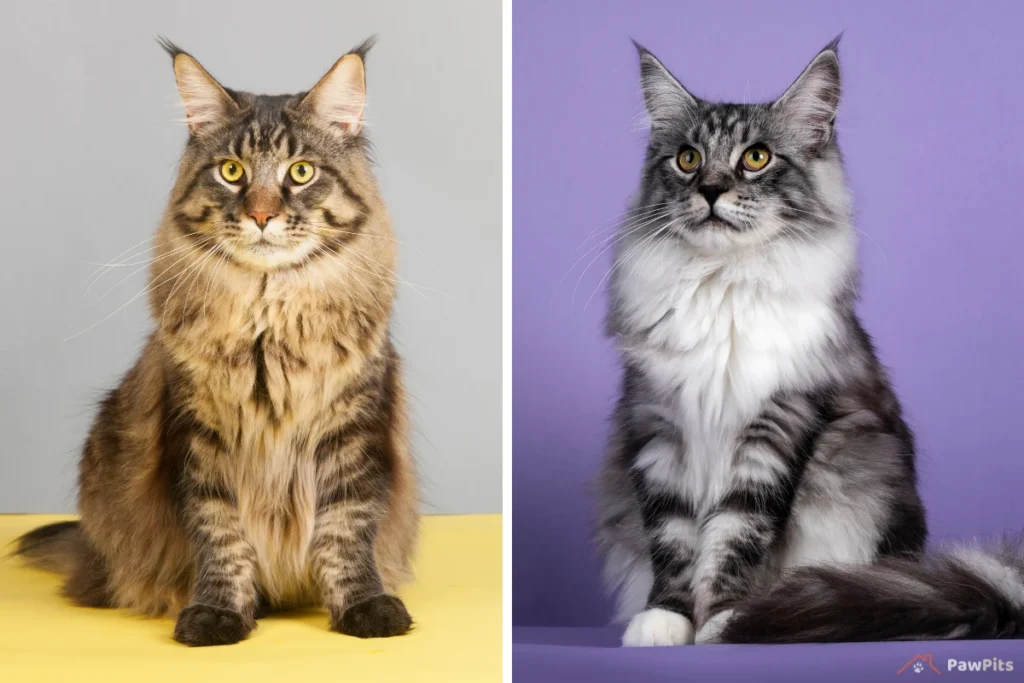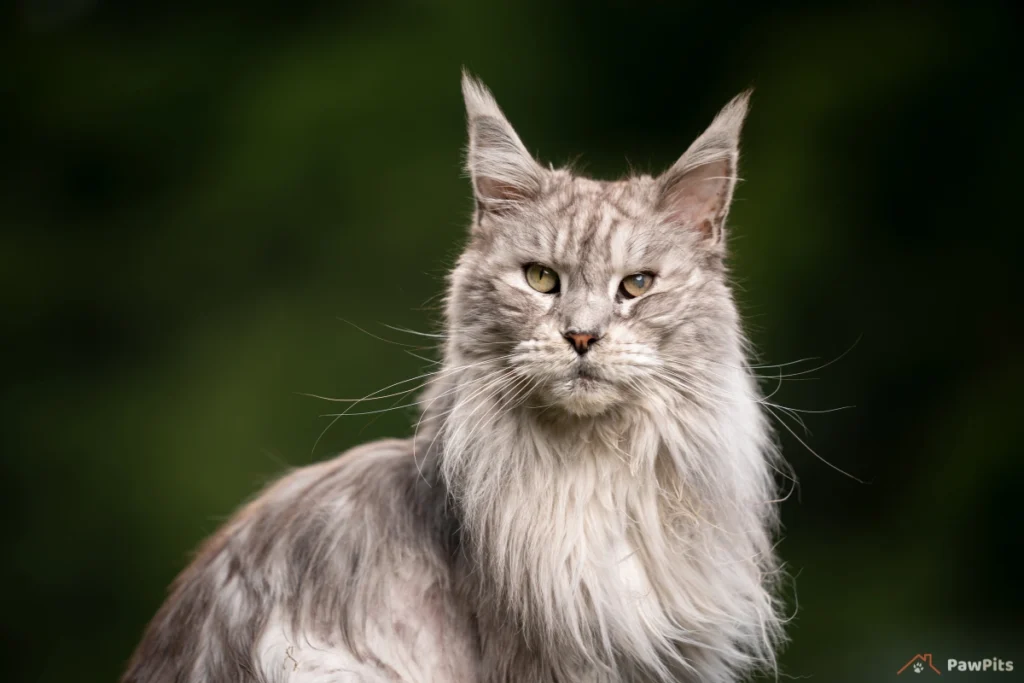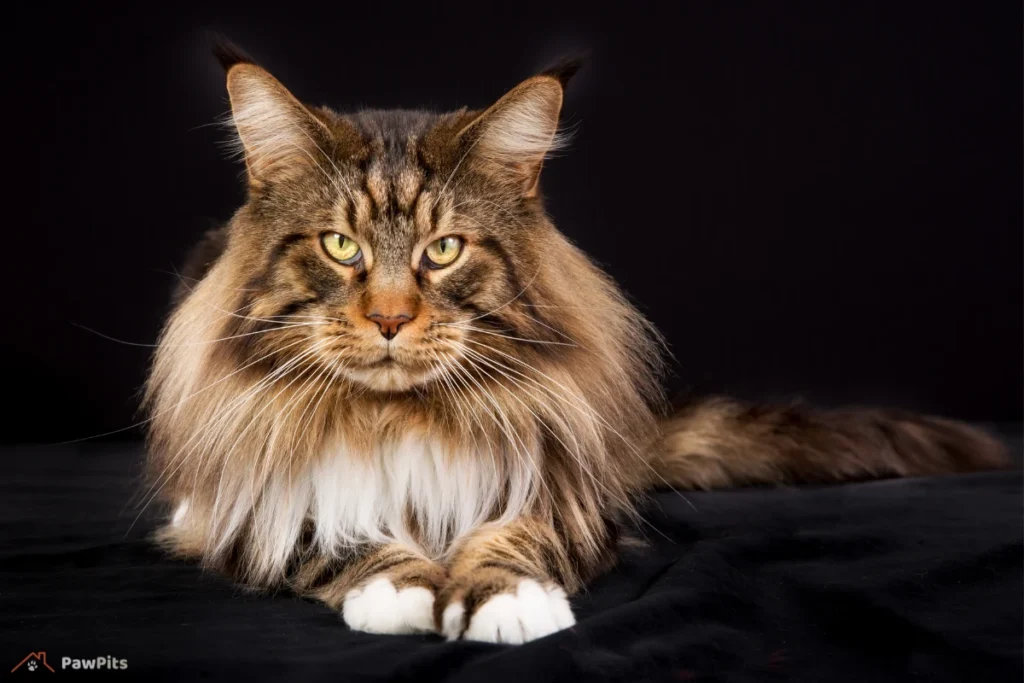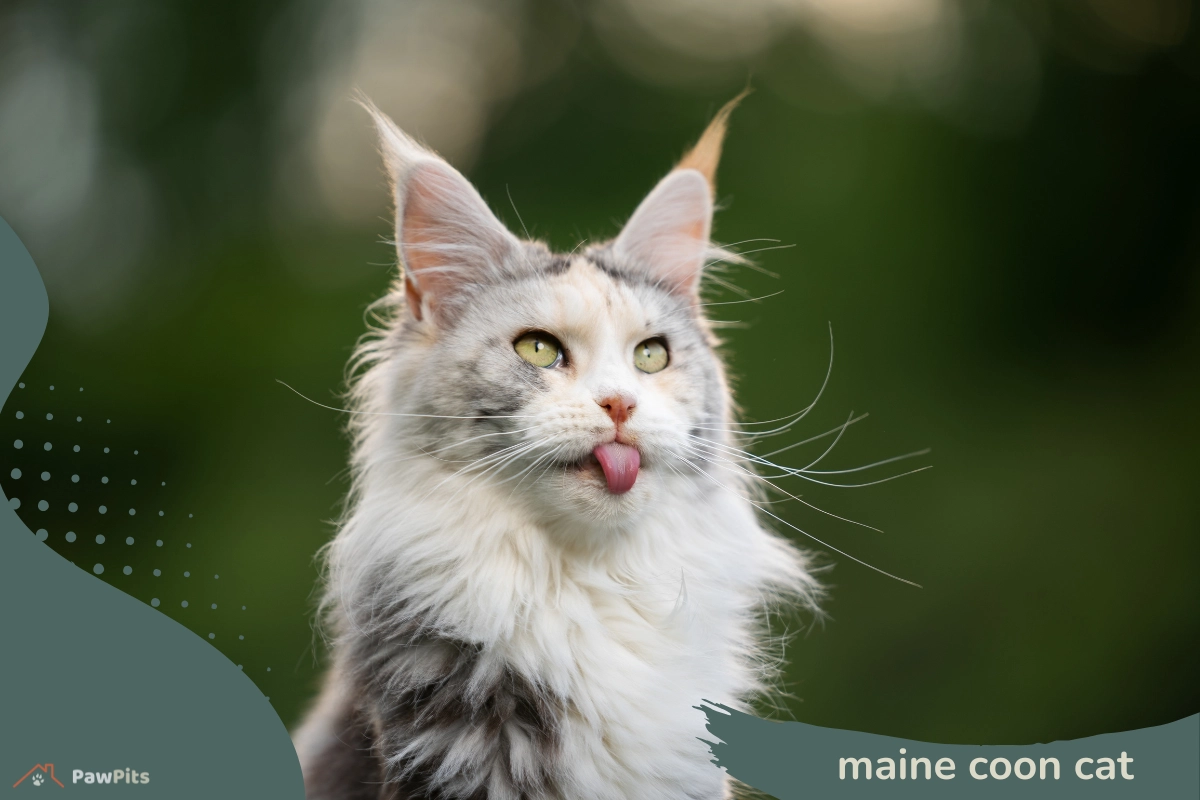If you’re considering adopting a cat, the Maine Coon might be one you’ve heard of. Known for its striking size, unique personality, and majestic coat, the Maine Coon cat is one of the most beloved and sought-after breeds worldwide. Whether you’re already a cat lover or you’re exploring the possibility of adding a furry companion to your family, the Maine Coon cat might be just the right fit. But what makes this breed so special? Why do people love them so much? Let’s explore what makes the Maine Coon a unique and cherished member of the feline world.
The Origins of the Maine Coon Breed of Cat
The History Behind the Maine Coon
The Maine Coon cat has a rich and fascinating history that sets the stage for its larger-than-life personality and extraordinary traits. This breed, known for its thick, water-resistant coat and tufted ears, is often associated with the cold, rugged terrain of Maine. While the exact origins of the breed are still a bit of a mystery, one thing is clear: it’s an American treasure.
Many legends surround the Maine Coon, but the most popular one suggests that the breed has Viking roots. According to this story, early settlers brought Norwegian Forest Cats with them to North America, where they eventually bred with domestic cats to form the Maine Coon breed. Another myth claims that the cats are the result of raccoon and cat interbreeding—a charming but scientifically impossible tale!
However, the most plausible theory is that the Maine Coon cat evolved naturally in the cold, harsh climate of New England. Their long, thick fur and bushy tails made them well-suited to survive the region’s frigid winters. Over time, they became a popular choice among Maine’s farmers and fishermen, who prized them for their hunting skills and large, resilient bodies.
Today, the Maine Coon is one of the oldest natural breeds in North America, officially recognized as a breed in the late 19th century. It remains a symbol of American feline history, loved for both its striking appearance and its gentle, dog-like personality.

What Makes the Maine Coon Cat So Unique?
Size and Appearance – The Majestic Maine Coon
One of the most defining characteristics of the Maine Coon cat is its sheer size. This breed is one of the largest domesticated cats in the world, with males often weighing between 13-25 pounds, and females averaging between 8-12 pounds. Their size, combined with their distinctive appearance, makes them stand out in any room.
Key features of a Maine Coon’s appearance:
- Large, muscular build: Maine Coons have long, muscular bodies designed for strength and agility. Their big, sturdy frames make them highly adaptable to various environments, from urban apartments to rural farms.
- Luxurious coat: The Maine Coon’s thick fur is a marvel in itself. It’s water-resistant, meaning it keeps them dry even in damp conditions. Their fur comes in almost every color and pattern, from solid blacks to tabby stripes, and is longer around their neck, creating a lion-like mane.
- Tufted ears and bushy tails: The Maine Coon’s ears are large, pointy, and often feature tufts of fur that make them even more distinctive. Their tails are long and bushy, and resemble a plume, adding to their majestic look.

Why Are Maine Coons So Loved?
Their Sweet and Gentle Personality
What makes the Maine Coon stand out even more than its striking appearance is its personality. Known for being affectionate and friendly, Maine Coons have earned a reputation for being the “gentle giants” of the cat world. Unlike many other cats, they thrive on companionship and are highly social, often developing strong bonds with their owners.
What makes their personality so appealing?
- Affectionate but independent: Maine Coons are incredibly affectionate but not clingy. They enjoy being around their human family members, following you from room to room, but they are not the type to demand constant attention. They will be happy to curl up on your lap for a cuddle, but they’re equally content to entertain themselves when needed.
- Dog-like behavior: You might be surprised to learn that Maine Coons often act more like dogs than cats. They’re known for playing fetch, following their owners around, and even walking on a leash. Their trainability and intelligence make it easy to teach tricks and commands.
- Good with children and other pets: Maine Coons are also well-known for getting along well with children and other pets, including dogs. Their calm demeanor and patience make them ideal for families with young kids or other animals.
These qualities combine to make the Maine Coon an ideal family pet, especially for those looking for a cat that is both friendly and independent.
Adopting a Maine Coon Cat
Maine Coon Cats for Adoption – What You Need to Know
If you’re looking to add a Maine Coon to your family, adopting is a great option. While you might be tempted to look for purebred Maine Coons through breeders, many shelters and rescues have wonderful Maine Coon cats waiting for a loving home. Here’s what you should know about adopting a Maine Coon.
Where to find Maine Coon cats for adoption:
- Breed-specific rescues: Many rescues specialize in finding homes for Maine Coons and similar breeds. These organizations are often a great place to start when looking to adopt.
- Local shelters: While shelters may not always have Maine Coons, it’s worth checking periodically. Many shelters have mixed-breed cats with some Maine Coon heritage or even full-blooded Maine Coons.
- Online adoption platforms: Websites like Petfinder and Adopt-a-Pet allow you to search specifically for Maine Coons in your area. They provide details about the cat’s temperament, health, and adoption fees.
What to look for when adopting:
- Health history: Ask about the cat’s medical history, including vaccinations, spaying/neutering status, and any health issues. Maine Coons can be prone to certain genetic conditions, so knowing their health background is crucial.
- Personality: Spend some time getting to know the cat before adopting. Since Maine Coons are known for their sociable nature, they should be friendly and comfortable around people. However, every cat has a unique personality, so make sure their energy level and temperament match what you’re looking for.
- Prepare your home: Since Maine Coons are large, make sure your home can accommodate them. They need room to move around, play, and run around. You’ll also need to invest in a large litter box, scratching posts, and comfortable resting areas.

Maine Coon Cat Care – Keeping Your Maine Coon Healthy and Happy
Grooming Your Maine Coon
One of the key responsibilities of owning a Maine Coon is maintaining their beautiful coat. While their fur is stunning, it does require regular care to keep it from matting or tangling. Here’s how to keep your Maine Coon looking their best:
- Regular brushing: Maine Coons have long, thick fur that should be brushed at least once a week to prevent mats and tangles. In shedding season, you might have to brush more often. Use a high-quality brush designed for long-haired cats to remove loose fur.
- Bathing: Maine Coons are relatively clean cats and don’t require frequent baths. However, they may need one every few months if they get dirty or if you’re dealing with an excess of loose fur.
- Ear and nail care: Maine Coons are known for their large, tufted ears, which can accumulate wax and debris. Make sure to look at and clean their ears often. This helps stop infections. You should also trim their nails every few weeks to keep them comfortable.
Maine Coon Cat Health Considerations
Common Health Issues in Maine Coon Cats
Maine Coons, like all other cat breeds, can have some health problems. Understanding these potential issues can help you provide the best care for your Maine Coon and ensure they live a long, healthy life.
Common health problems:
- Hypertrophic Cardiomyopathy (HCM): This is a genetic heart condition that affects many Maine Coons. It can cause the heart muscles to thicken, leading to heart failure. Taking your pet to the vet regularly is very important to check how healthy their heart is.
- Hip dysplasia and arthritis: Due to their size, Maine Coons are more susceptible to joint problems, especially hip dysplasia. Over time, they may develop arthritis, which can affect their mobility. Regular exercise, a healthy diet, and maintaining a healthy weight can help manage these issues.
- Dental health: Dental disease is common in all cats, including Maine Coons. Regular brushing and dental check-ups are essential for keeping your Maine Coon’s teeth and gums healthy.
| Health Concern | Prevalence | Preventive Measures |
|---|---|---|
| Hip Dysplasia | Moderate | Regular veterinary check-ups, joint supplements, maintaining a healthy weight |
| Hypertrophic Cardiomyopathy | High | Echocardiogram screening, medication management, monitoring for symptoms |
| Polycystic Kidney Disease | Moderate | Genetic testing, frequent kidney function tests, proper hydration |
Life Expectancy Factors
Maine Coons can live a long life with the right care. They generally live for about 12 to 15 years. Things like their genes, food, exercise, and vet visits can affect how long they live. Taking good care of them and giving them a loving home helps them live a long and happy life.
| Grooming Task | Frequency |
|---|---|
| Brushing | 2-3 times per week |
| Bathing | Every 2-3 months, as needed |
| Nail Trimming | Every 2-3 weeks |
Maintaining your Maine Coon’s health requires regular vet visits, a balanced diet, and being proactive about potential issues.
FAQ Section:
Common Questions About Maine Coon Cats
1. Do Maine Coon Cats Shed a Lot?
Yes, Maine Coons shed moderately, especially in spring and fall. Weekly brushing helps control shedding, and twice-weekly grooming is recommended during peak seasons.
2. Are Maine Coons Hypoallergenic?
Maine Coons produce lower levels of Fel d 1, making them better for mild allergy sufferers, though no cat is fully hypoallergenic. Testing exposure is advised.
3. What Makes Maine Coons Good Family Pets?
Maine Coons are kind and friendly cats. They are great with kids and other pets, which makes them perfect for families. They have a calm and social personality.
4. Are Maine Coon Cats Good with Other Pets?
Yes, Maine Coons are known for their social, dog-like behavior and get along well with other pets, especially if introduced early.
5. How Big Do Maine Coon Cats Get?
Males weigh 13-25 lbs and females 8-12 lbs, reaching up to 40 inches in length. They reach full size around 3-4 years.
6. What is the Lifespan of a Maine Coon Cat?
Maine Coons live on average 12-15 years, with diet, exercise, and regular vet care contributing to a longer life.
7. What Are Common Health Issues in Maine Coons?
They may experience hypertrophic cardiomyopathy (HCM), hip dysplasia, spinal muscular atrophy (SMA), and dental issues. Regular vet care is essential.
8. How Can I Train My Maine Coon Cat?
Use positive reinforcement and short, fun sessions. Maine Coons are smart and enjoy learning tricks and commands, especially if training starts young.
9. How Much Exercise Does a Maine Coon Cat Need?
Maine Coons need daily exercise through play, climbing, and, if trained, leash walks. Toys and vertical spaces help keep them active.
10. What Should I Feed My Maine Coon Cat?
Feed a high-protein, balanced diet with joint support. Wet food is also beneficial for hydration.
| Nutrient | Recommended Amount for Maine Coons |
|---|---|
| Protein | 30-40% of total calories |
| Fat | 20-30% of total calories |
| Carbohydrates | 30-40% of total calories |

